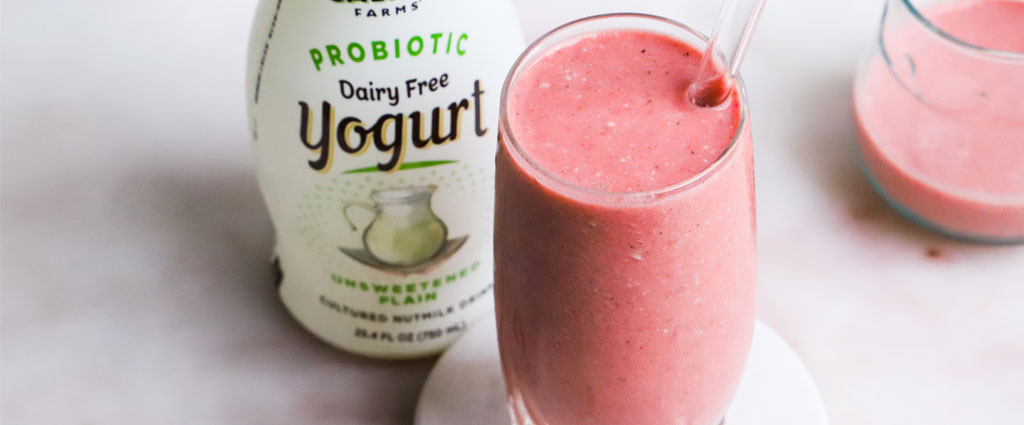The idea of intentionally introducing bacteria into your body may seem counterintuitive. But research repeatedly shows that probiotics are key to gut health and a viable option for the treatment and prevention of several common gut-related ailments.
Various strains of probiotics—live, friendly and helpful bacteria and yeasts that are particularly good for the digestive system—are found in foods like yogurt. They can be an overall boost to your health, even if you have no pre-existing tummy troubles.
Healthy Bacteria Means a Healthy Gut
These healthy bacteria help improve the gut environment, especially for people who struggle with digestive issues like constipation, yeast infections, irritable bowel syndrome, bouts of diarrhea or averse reactions to antibiotics, says Molly Hembree, R.D., L.D., retail dietitian coordinator for The Little Clinic of Kroger in the Columbus, Ohio, area. For those with dairy sensitivity, some studies have indicated that yogurt containing probiotics aids in digestion of these foods, making them appealing to the lactose intolerant.
Probiotics help lower the concentration of lactose in fermented products like yogurt and kefir. They do this by boosting activity for the enzyme that breaks down lactose, which enters the small intestine with the fermented products.
TRY THESE DAIRY-FREE YOGURT RECIPES
Crohn’s and Probiotics
There are also some early indications that probiotic therapy may benefit people with Crohn's disease, which affects an estimated 3.1 million adults in the United States. Harvard Medical School reports that, while clinical trial results are mixed, “several small studies suggest that certain probiotics may help maintain remission of ulcerative colitis and prevent relapse of Crohn's disease and the recurrence of pouchitis (a complication of surgery to treat ulcerative colitis).”
Hembree urges people with stomach or digestive problems to talk to their doctor about whether increasing probiotic intake could help ease these and other symptoms.
Originating from Latin and Greek, “probiotic” means “for life,” and the bacteria found in them also contain a range of nutrients like calcium, protein, magnesium, potassium, zinc, and vitamins C, B12 and B2.
“Even if you’re otherwise eating well, with a diet rich in plant foods (with prebiotics that serve as food to bacteria and yeast),” Hembree says, “probiotics can be a good candidate to further improve the gut environment.”






Share this Post